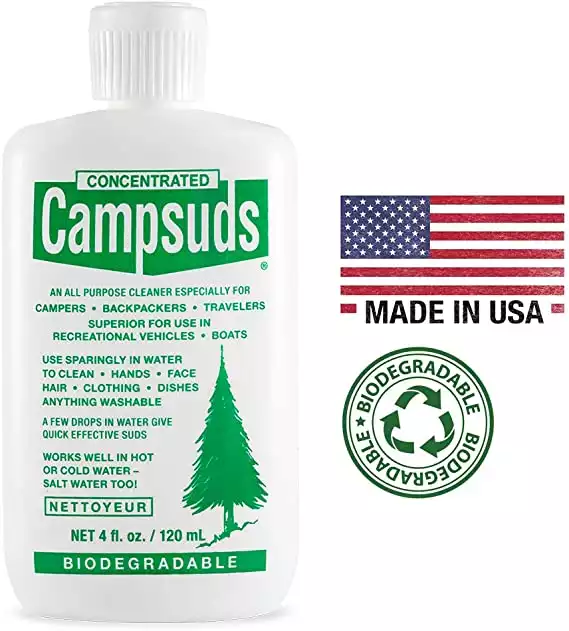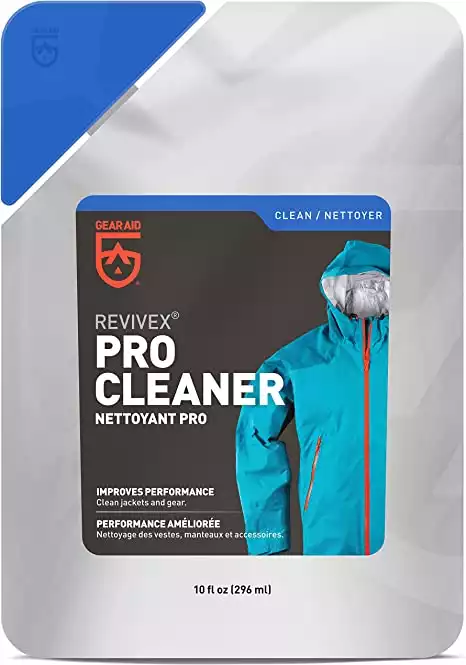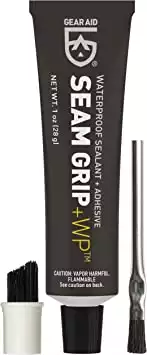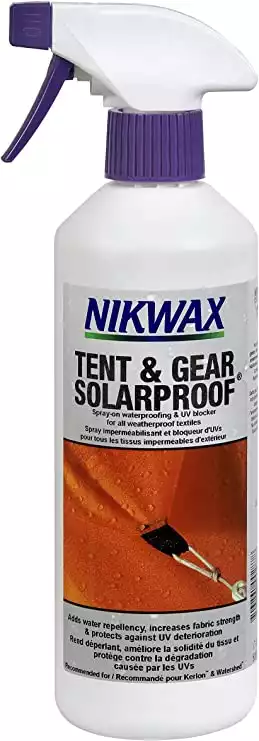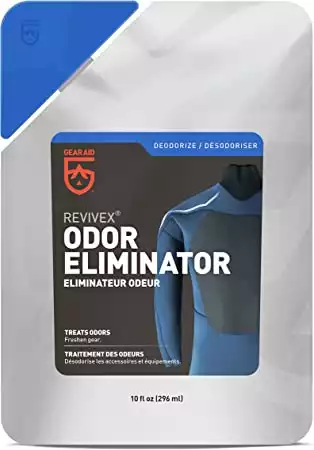Getting ready for the new summer season means nights out under the stars for many outdoor fanatics. There aren’t many more disappointing things than pulling out your tent and finding that it fills the space with a terrible odor.
You might not want to believe that it is emanating from what should be your shelter from the elements. You start to imagine what it will be like trying to sleep, being surrounded by the foul smells swirling around you all night, and begin to think about abandoning the whole endeavor.
Don’t give up yet! Getting rid of foul odors in some of your camping gear is not an issue. It merely takes some of the right cleaning material and a little bit of elbow grease.

What Causes the Smell?
First and foremost, it helps if you know what the smell’s source is in your tent. Sometimes after a hard rain or a morning dew, we have to pack up before the tent is completely dry. At other times, it could only be that your tent is getting old.
Mold and Mildew
One of the most common reasons for a tent that smells foul is mold and tent mildew growth. They are a fungal growth that spread and reproduce through spores. That means you don’t ever see them coming, but all of a sudden, they are everywhere and very visible.
You can often tell if your tent is smelling of mold or mildew because the odor it produces is a strong, musty smell. It somehow smells stale and old, like the fungi ages the material.
It is less than suggested to sleep in a tent that seems to have an invasion of mildew or mold. It can cause highly damaging health effects for anyone, even if you are not technically allergic or more sensitive to them.
When you learn how to clean a tent with mold, look up preventative measures so it doesn’t happen again.
Polyurethane Breakdown
Another factor that can smell even worse but isn’t quite as damaging to your health is the breakdown of polyurethane or PU. No pun intended.
Tents and plenty of other waterproofed outdoor products get a coat of PU before the sale. This coat can last for years, but eventually, it will begin to breakdown. UV light leads to faster breakdown and using it more in general.
That means that the PU coating on the rainfly will typically break down faster and might need extra cleaning or waterproofing treatment to stay effective.
This smell is easily detected and diagnosed since it smells like a terrible mixture of vomit and urine. One of the ways to solve this is to talk with your manufacturer. Otherwise, read on for more details about how to clean a tent that smells.
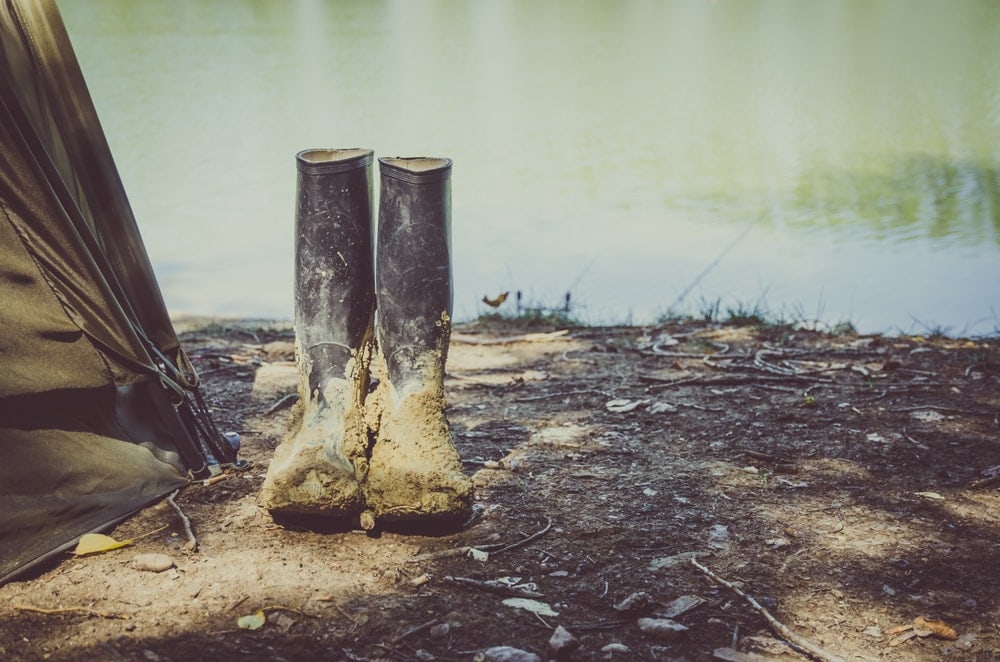
Time and Grime
The last one that typically doesn’t make it smell too bad and might not be as noticeable is the effect of using it outdoors. As you continue to use your tent, it might get stained or have dirt and dust packed into it.
If you don’t regularly clean out your tent after your trips, this can create a bad smell from being packed in for so long.
Tent-Washing Tips
Before we start with the step-by-step processes for how to clean a tent that smells, here are some essential tips to make sure you know. Heed them well, and you will find greater success.
Consult the Manufacturer’s Warranty
Some people live and breathe by the manufacturer’s instructions and what it stipulates in the warranty. However, if most of us are honest, that is one of the first things thrown out after purchase.
If it is important to you that you protect your purchase, then read the manufacturer’s warranty before using any of these methods. Do not use them if they void the warranty, and you are still within the time of protection. If this excludes most of our processes, then contact your manufacturer for an acceptable solution.
Never Use a Washing Machine
Do not think that a simple solution to cleaning your tent is to throw it in with your delicates.
The mesh panels that accompany the build of most tents do not handle a machine wash well. It can rip them to shreds at worst or make them less effective and widen the holes for insects to get in at best.
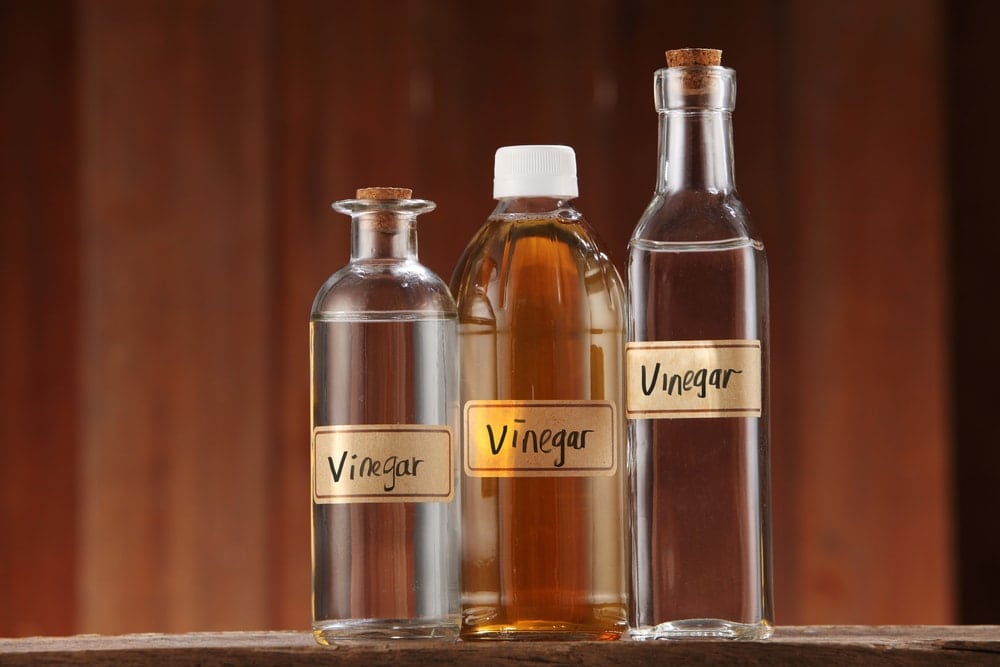
White Vinegar is Your Friend
White vinegar is one of the most effective at-home cleaners there is. It can get rid of almost any stain and stench on virtually any fabric. Luckily, this includes tent materials.
The other great characteristic of white vinegar is its friendliness to a budget. You can find an entire gallon for less than $3 at most stores. Since it needs to be mixed with water to dilute it, this is often more than enough.
Never Use Bleach
Our last tip before getting into it is to avoid bleach. Many people view bleach as the end-all when it comes to cleaning. You need to ditch this idea when it comes to your outdoor gear.
Bleach weakens the fibers of your outdoor material, and for the most part, that dramatically decreases their usefulness. It also destroys the waterproofing on your tent and can lead to a faster PU coating breakdown.
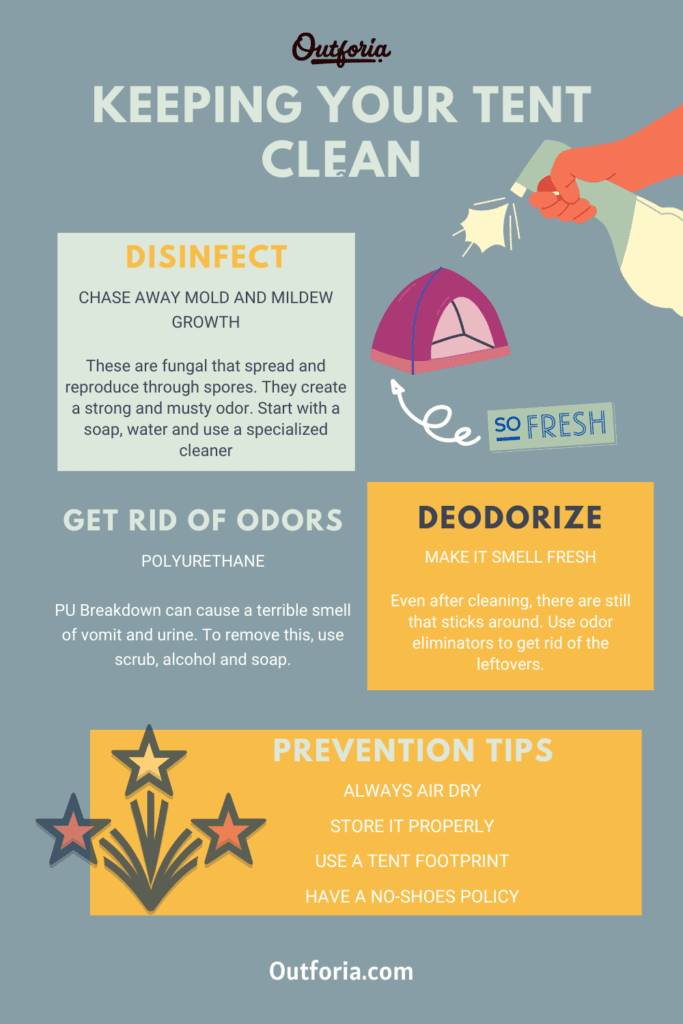
Share this Image On Your Site
<a href="https://outforia.com/how-to-clean-a-tent-that-smells/"><img style="width:100%;" src="https://outforia.com/wp-content/uploads/2020/12/New-Smelly-Tent-683x1024.png"></a><br> How To Clean A Tent That Smells Infographic by <a href="https://outforia.com">Outforia</a>Disinfecting: Chasing Away Mold and Mildew
Step 1: Start simple with water and soap
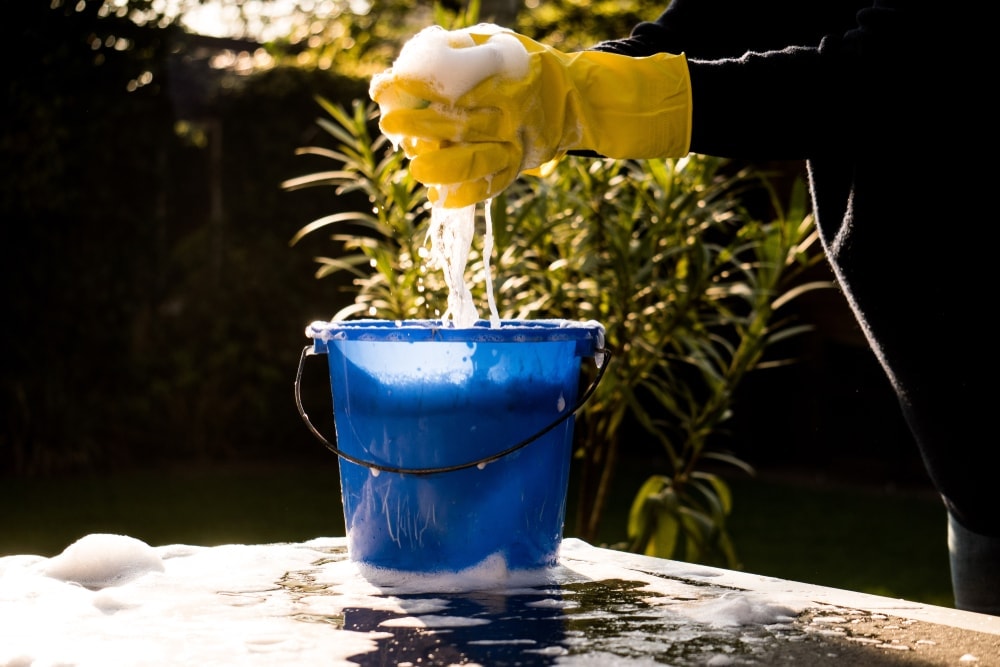
Materials:
- Biodegradable soap
- Sponge
- Tub
- Warm Water
- White vinegar (optional)
It is always best to start with the tamest solutions. If you think that your tent smells because of an infestation of tent mildew, fill a bucket with warm water and biodegradable soap. It should have the least effect on wearing down the water repellency of your tent.
- Recommended soap bottle for outdoor enthusiasts
- All-natural with light and refreshing lemon scent
- Heavy duty cleaner yet gentle on skin
If you already know that it requires more of a heavy-duty solution, then you can mix a tub of water and white vinegar in a 50/50 solution. Throw in a cup of lemon juice to make it smell fresher without too much of a smell. Let it soak in there for an hour, and then gently scrub it down.
Use a sponge to spot clean with the water and soap, scrubbing down any visible areas. Rinse all of the soap mixtures off and allow it to air dry completely before packing it away or continuing to step two.
Step 2: Use a specialized cleaner
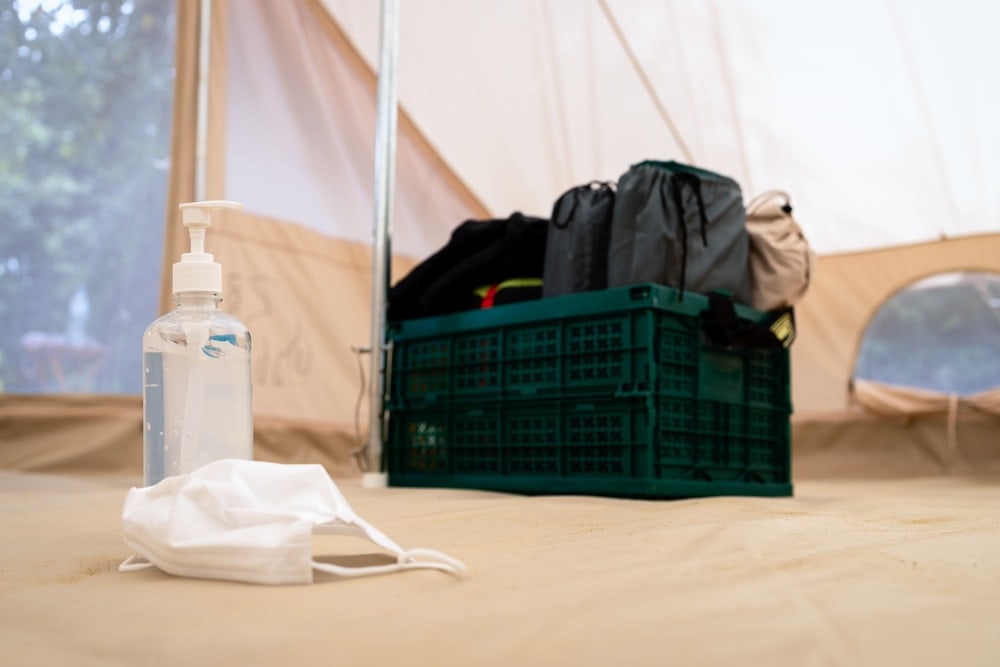
Materials:
- Revivex Pro Cleaner (specialized cleaner)
- Tub
- Warm Water
- Sponge
Sometimes, soap and water just don’t cut it when cleaning a moldy tent. When that happens, it is time to break out the big guns and use a specialized cleaner, such as Revivex Pro Cleaner. Follow the instructions for the amount you should put into a tub of warm water.
- Safe for all outdoor gear and gore-tex materials
- Restore breathability and repellency on fabrics
It is best if you avoid scrubbing the underside of the tent fly. The PU coating is more sensitive here, and you don’t want to damage it.
Finish the process off by rinsing the tent until all of the soap is gone. Then, allow it to air dry completely. This process should take 6 to 8 hours. Not allowing it to finish air-drying often means you start the cycle of mold growth all over again.
Step 3: Remove sap
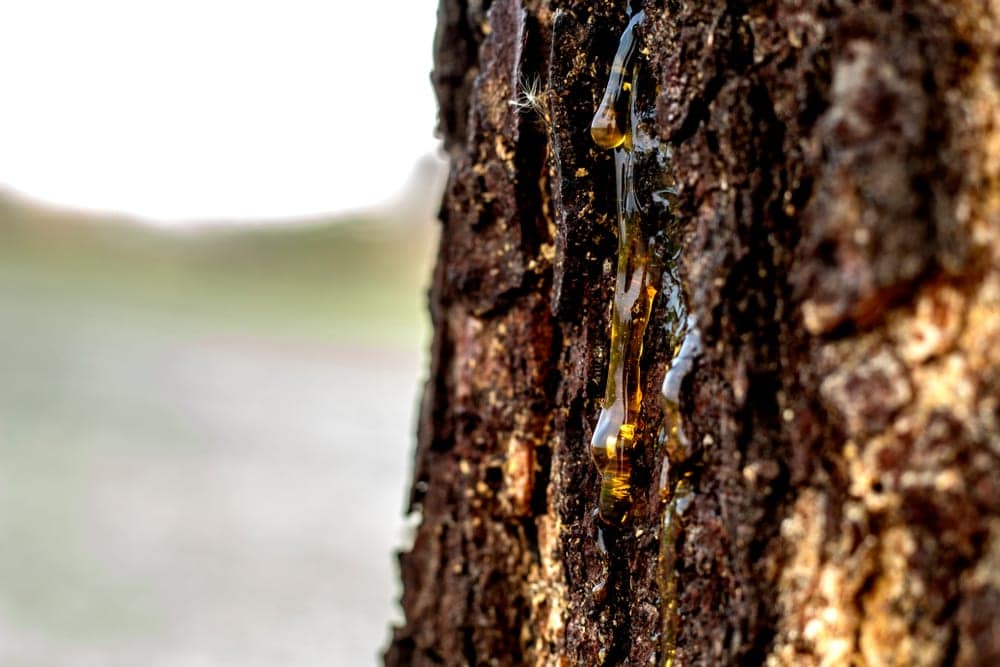
Materials:
- Isopropyl alcohol
- Soft cloth
Using isopropyl alcohol, spray, or wipe down the areas of your tent that have sap on them. Sap can end up causing a strong scent over time. It also plays a great host to fungal growth and can lead to a moldy tent. Wipe them down gently to get them clean without wearing away the exterior coating.
Get Rid of Polyurethane Odors
Step 1: Submerge and soak
Materials:
- Tub
- Warm water
- Biodegradable soap
Getting rid of PU odors begins the same way that getting rid of mildew and mold does. Fill a tub large enough to hold your tent with warm water. Add about five drops of the soap to it. Then, place your tent into the mix and let it soak for two or three hours.
Step 2: Remove the PU coating
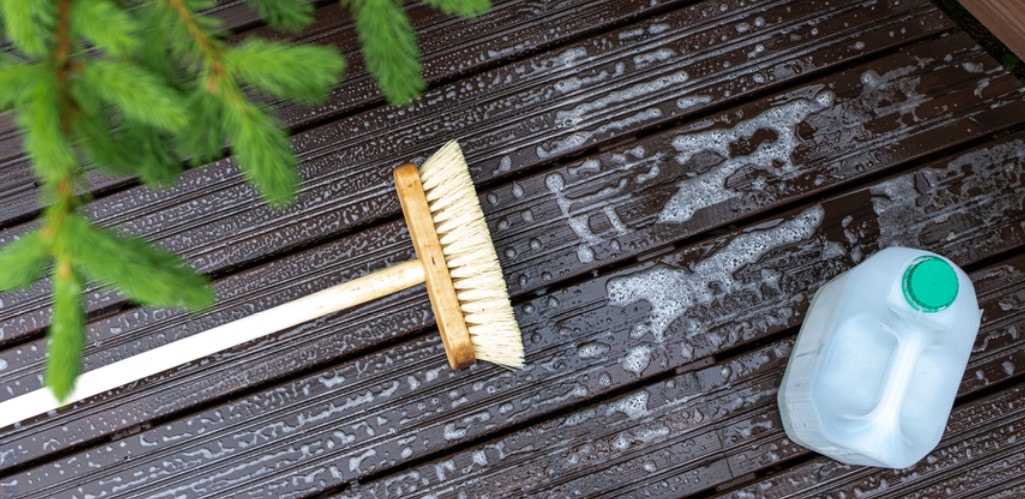
Materials:
- Soft bristle scrub brush
- Isopropyl alcohol
- Biodegradable soap
- Water
After your mixture has had time to soak, you should be able to remove all of the PU coating that is failing. Mix warm water with a couple of drops of your biodegradable soap and some isopropyl alcohol.
Use the soft bristle scrub brush to scrub away all of this old layer. Scrub gently since too much friction can cause unnecessary wear and tear on the tent’s fabric.
Step 3: Dry it off
Materials:
- Dish towel
Start the drying process by using a dish towel to soak up any other residue and water left outside the tent. It should be dry before the next step.
Step 4: Re-waterproof
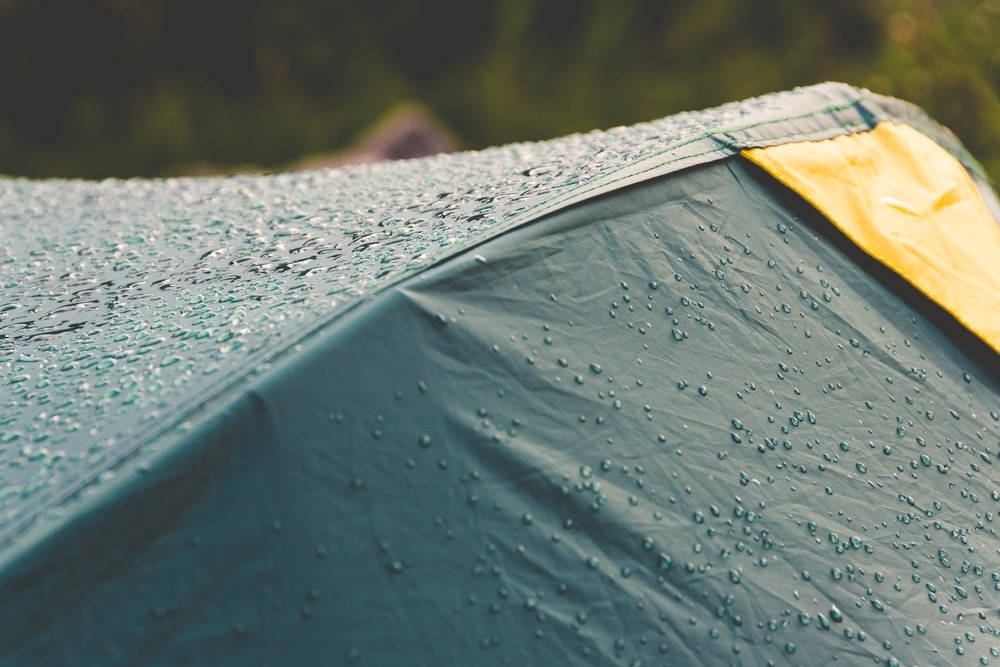
Materials:
After you are satisfied that the old PU coating has been completely removed and the tent is dry again, it is time to redo the waterproof layer. The seams are the most vulnerable places on your gear and should be treated with much more consideration.
Waterproofing along your seams is more of an art than a science. You need to carefully apply the waterproof coating along each of your seams inside and outside your tent. Follow the instructions on your seam grip to get the most effective results.
Once you have finished along the seams, use a waterproofing spray to give a thinner coat to the rest of your tent.
Give it at least 24 hours to air dry before packing it back up.
- Handy waterproof sealant and adhesive
- Permanently repair holes in tents and gears
- Bonds on all types of fabric
- Waterproofing and UV Protection spray
- Works on weather-proof fabrics
- PFC-Free, water-based ingredients
Deodorizing: Making it Smell Fresh
Even though your tent may be free of dirt, mold, and other grimy substances, there is often still a smell that sticks around. The fastest way to remove a mildew smell from a tent is to use an enzyme cleaner.
These are often named “odor eliminators” and work to break down the leftover substances causing the smell without adding a scent of their own.
Even a scent smells good to you, such as lemon or a floral smell, it isn’t a good idea to use it for your tent. It will attract wildlife to you, which is not always a goal while you sleep.
Step 1: Make your mixture
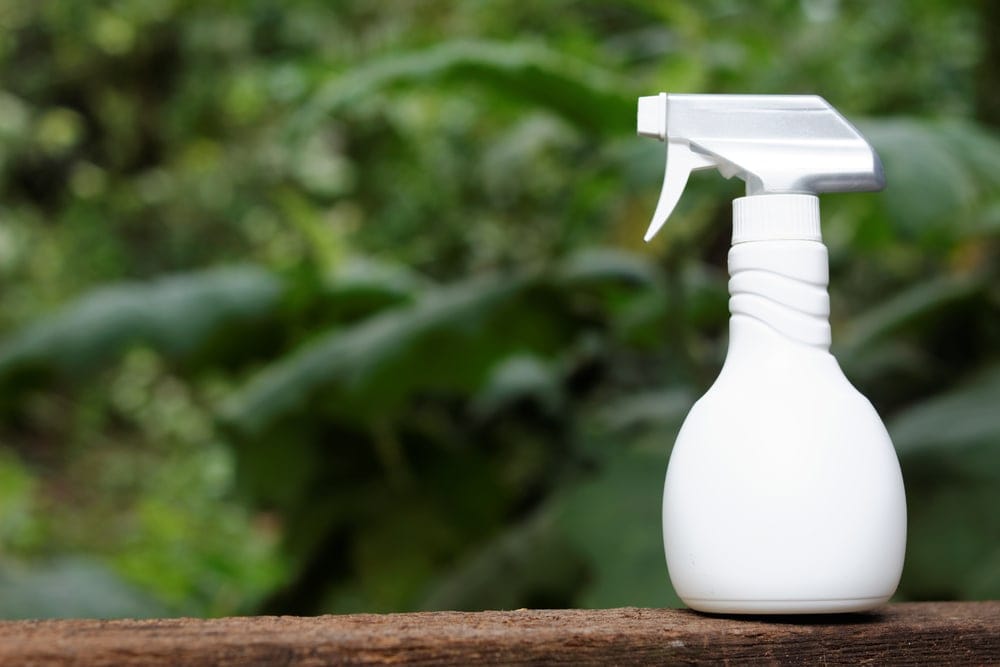
Materials:
- Odor eliminator
- Tub
- Warm water
Fill a tub with warm water. It should be large enough to submerge your tent. Add the appropriate amount of odor eliminator, as stated in the instructions on the product. You can use Revivex odor eliminator since it is made specifically for these types of materials.
- Eliminate odors and other unpleasant scent naturally
- Gentle for all types of outerwear and gear
- Works on a variety of fabrics
Step 2: Soak the tent
Open up all of the tent flaps and unzip all the zippers. Submerge the tent in the water and allow it to soak for about 5 minutes.
Don’t wait to submerge your tent in the mixture you have created. Microbes often cause the effectiveness of the product. Once they are exposed to air, they begin to consume themselves and steadily become less effective.
Pull your tent out but don’t rinse it off. Instead, allow it to air dry and keep it away from direct sunlight.
Prevention is Key: Storage and Future Use
Keeping your tent smelling fresh for as long as possible is all about prevention. Whether you have already dealt with a smelly shelter and don’t want to again, or you are looking for options that limit this exposure, follow preventative tips and tricks.
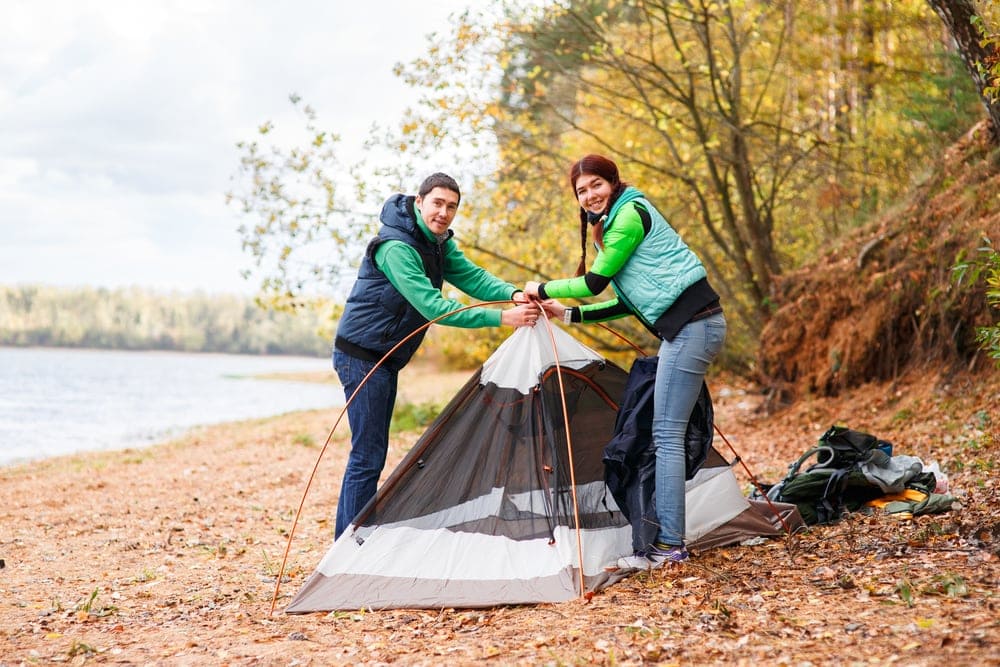
Tip 1: Always air dry
It is not always possible to allow your tent to air dry entirely when you are on your trip. However, that doesn’t stop you from pulling it out as soon as you get home and open it up. Allow it to completely dry before storing it for the next use.
Tip 2: Store it properly
Always store your tent in a dry environment. It is preferable to put it somewhere that doesn’t experience large fluctuations in temperature as well.
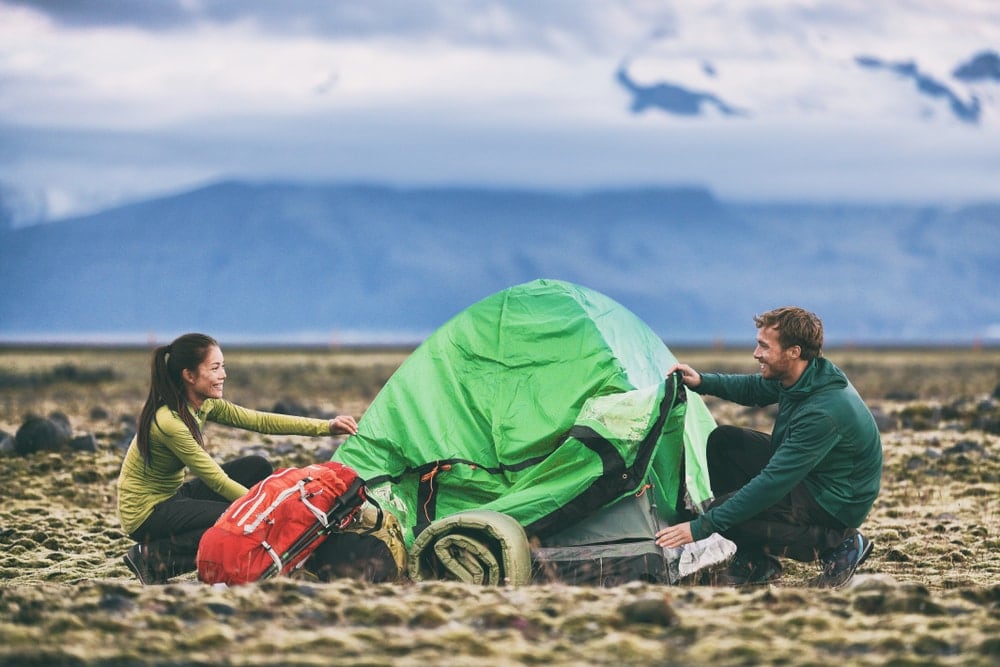
Tip 3: Use a tent footprint
Although it isn’t preferable for a backpacker to bring along more material, most campers can afford a couple of extra ounces. Bring along a tent footprint and set it up properly underneath the tent. It limits the continued exposure that the bottom seams have to moisture and rainwater.
Tip 4: Have a “no shoes” policy
Limit the amount of grime and buildup on the inside of your tent. Don’t allow anyone to wear shoes in the tent. You might also want to instate a no food policy to keep crumbs from dropping.
Limiting the amount of both of these helps to prevent further mold and mildew growth after your tent is packed away. If you do allow these things in the tent, give it a thorough clean after each usage.
FAQ
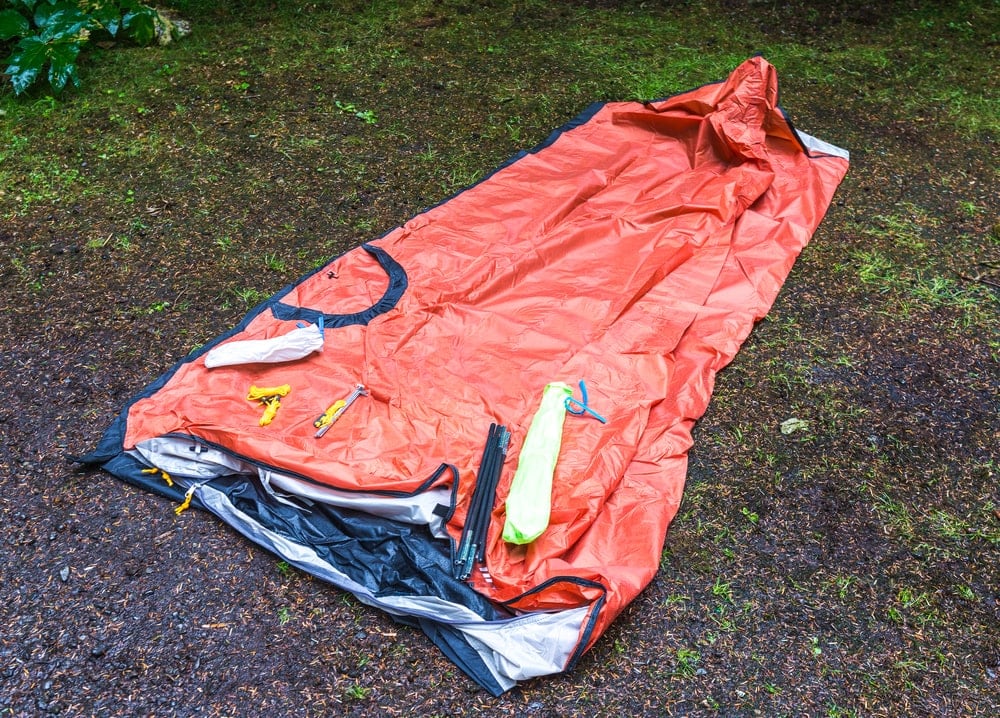
What happens if you put a tent away wet?
Often, when you put away a wet tent, it will begin to develop a musty smell caused by fungal growth. Moisture inside of an enclosed area makes an excellent home to mold and mildew.
Why does my tent get wet inside?
Your tent could be getting wet inside from three sources. The first is the general humidity that is in the air. The second is from the added moisture that bodies breathing in and out create. The third is that your tent is not properly waterproof and might need additional treatment.
Can you use bleach to clean a tent?
No. You should never use bleach to clean a tent. It is a harsh chemical that quickly breaks down the waterproof coating on your tent and weakens the material’s fibers.
Does sunlight kill mold?
Sunlight does kill mold naturally since it cannot photosynthesize in the light. Heat also helps to kill it off. However, it does take much longer for sunlight to kill mold than typical cleaners will.
How should a tent be stored?
Store your tent in a waterproof container that will not allow damp to get around the tent. Store it in a dry place without highly fluctuating temperatures and keep it out of direct sunlight. Doing all of this will prevent further breakdown of the UV-resistant and water-resistant coatings.



